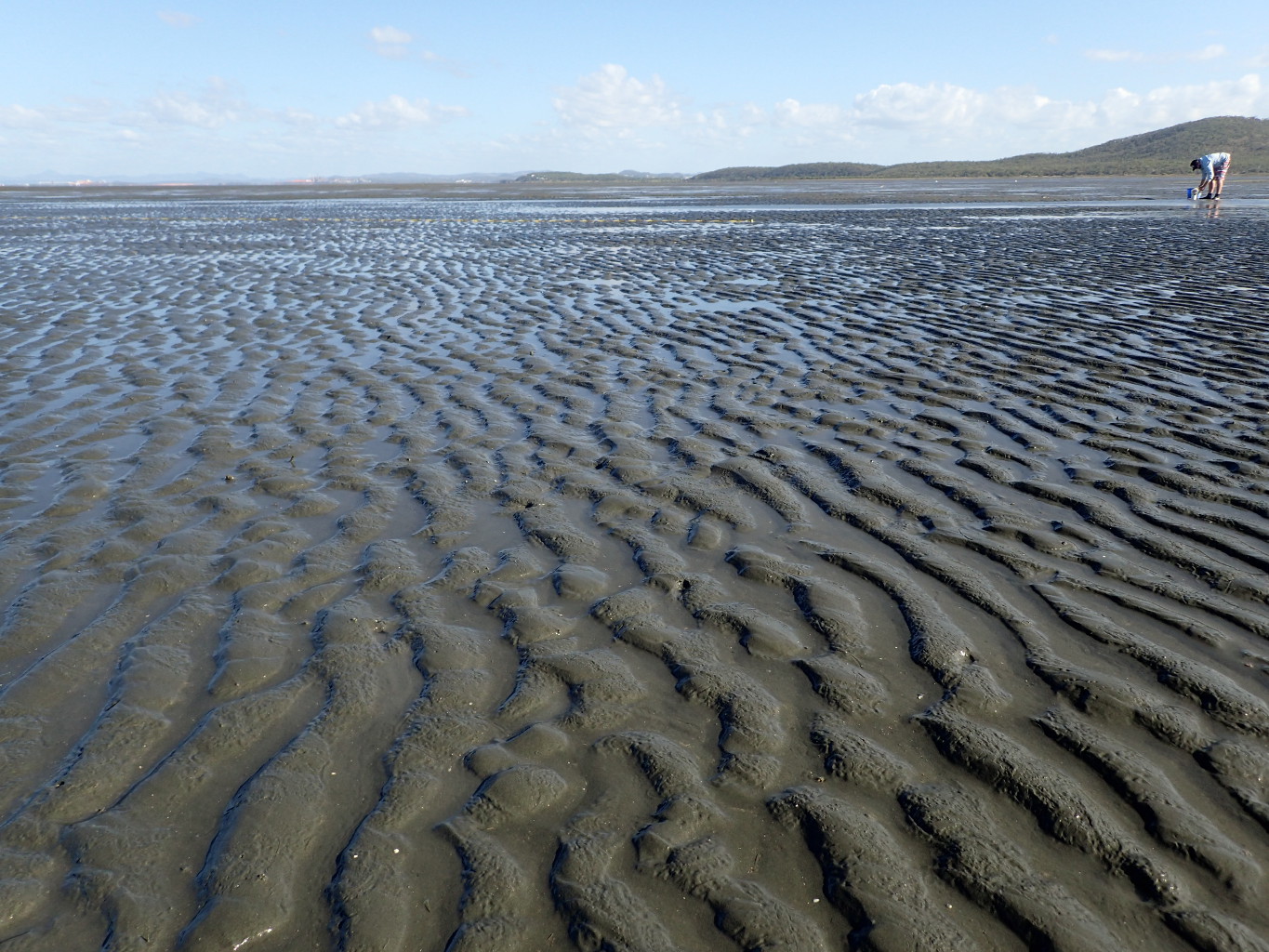|
|
Intertidal unknown energy over mudShort descriptionIntertidal mud-dominated substrate where energy is unknown. Disclaimer: Ecosystem type descriptions are based on biophysical attributes identified in Central Queensland through expert advice and supported by scientific literature. Not all ecosystem types are mapped based on current inventory, and many of the ecosystems described here may also occur in other parts of Queensland.
Classification categoriesSelect from the links below to view related ecosystem type categories Long descriptionIntertidal mud-dominated substrate where energy is unknown, and the level with respect to mean sea level is undifferentiated. May have similar values to other mud ecosystems (types 27, 28, 29) depending on energy and position in the tidal plane (i.e. habitat for seagrass, coral and infauna in the upper intertidal in association with re-suspension of fine sediments and high turbidity). Refer to the ecosystem types above. May have similar biota to adjacent ecosystem type bare above MSL (type 17), which is mapped by the Herbarium. These ecosystems are typically adjacent to saltmarsh and mangrove communities, and the boundary between the bare area and the saltmarsh and mangroves can shift in association with changes in catchment runoff (rainfall, stormwater, altered flows, land use), and in the longer term sea level rise. Can include channels and pools. Can be covered with mats of benthic microalgae (BMA), which provide food for crustaceans (e.g. crabs) and molluscs (e.g. whelks). Breaking the BMA mat or crust (e.g. motorbikes and 4WDs) can damage the ecology of the area and bring about erosion, and it may take a long time to restore. Special valuesImportant fisheries habitat that can provide for feeding, growth and reproduction[1]. Vegetated and non-vegetated saltpan-associated ecosystems are used by a high number and diversity of fishes (many of economic importance), particularly in association with intertidal mangrove-lined creeks[3]. Fiddler and marsh crabs feed in these ecosystems following inundated by rainfall or tide, and shelter in burrows at other times. Unvegetated saltpan adjacent to coastal wetlands provide feeding areas for high value fisheries species. Fish, such as sand whiting, yellow fin bream, threadfin salmon and flathead feed on benthic crustaceans, bivalve molluscs and polychaete worms that are abundant in these bare areas[2]. Can provide part of the habitat complex for the water mouse (Xeromys myoides)[6][5]. Potential feeding areas and roosting areas for shorebirds provided by the habitat complex of bare areas adjacent to mangroves. Different species feed and roost in different habitat units of the complex[4]. Many shorebirds are Environment Protection and Biodiversity Conservation Act 1999-listed species (EPBC). Diagnostic attributesInundation 'Intertidal – Lower low', 'Intertidal – Mid low', 'Intertidal – Upper low', 'Intertidal – Low undifferentiated', 'Intertidal – Lower medium', 'Intertidal – Upper-medium', 'Intertidal – Medium undifferentiated', 'Intertidal – High', 'Intertidal – Undifferentiated', 'Intertidal – High undifferentiated' Sediment texture 'MUD', 'gravelly MUD', 'muddy SAND', '(slightly gravelly) sandy MUD', '(slightly gravelly) MUD', 'sandy MUD' (note that the dominant grain size is capitalised) QualifiersMay include the intertidal sections of mapped modified ecosystems that have modified Benthic depth and Terrain morphology, including: dredged channels, boat harbours, depressions near boat ramps etc., however these structures tend to be more common in low energy environments. Period and Trend qualifiers are also relevant as the Energy magnitude may also vary seasonally and episodically with respect to wave action. DistributionCommon up and down the Queensland coast, particularly in association with river mouths. The following relates to distribution of this ecosystem type within the Central Queensland mapping area:
CommentsRefer to types (27, 28 and 29) Additional InformationIntertidal mud flats - Queensland Museum Tidal planes - Maritime Safety Queensland Understanding coastal erosion on beaches References
Last updated: 22 July 2019 This page should be cited as: Department of Environment, Science and Innovation, Queensland (2019) Intertidal unknown energy over mud , WetlandInfo website, accessed 8 May 2025. Available at: https://wetlandinfo.des.qld.gov.au/wetlands/ecology/aquatic-ecosystems-natural/estuarine-marine/descriptions/38/ |

 — Department of the Environment, Tourism, Science and Innovation
— Department of the Environment, Tourism, Science and Innovation


